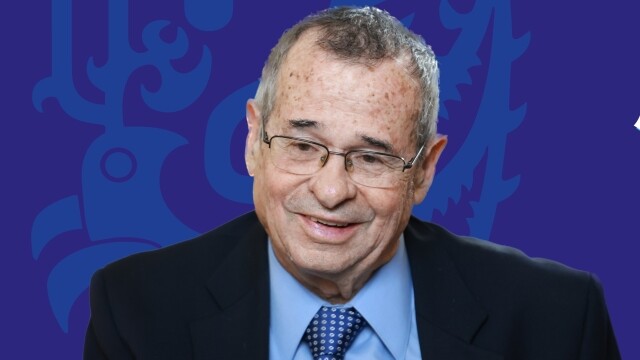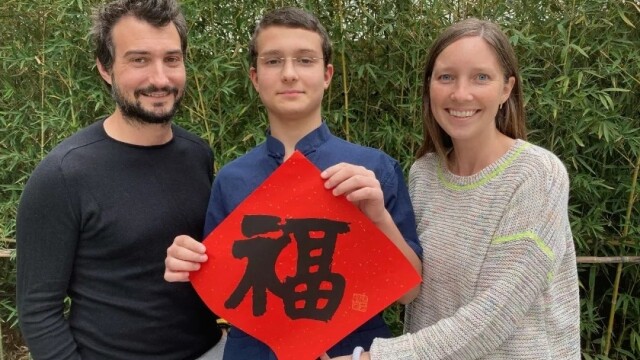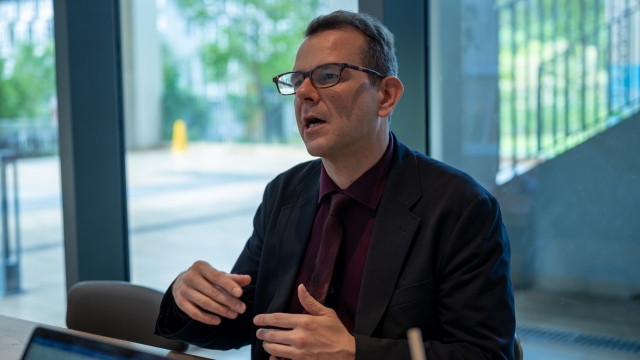Feature Stories

Dr. Stavroula Tsirogianni is a social psychologist and Associate Professor (Teaching) at the School of Humanities and Social Science. You could say every Psychology major is her pupil: she teaches the course PSY 1010 (Introduction to Psychology), along with the other two PSY courses. Her field of research includes values (how it shapes the meaning of life) and social change (value shift, perspective-taking). In particular, she is interested in interdisciplinary collaboration and utilizing diverse research methods. Apart from being a lecturer, she has various interests such as singing, dancing (Cuban salsa), and traveling.

From London to Shenzhen
Before joining CUHK-Shenzhen in 2019 August, Dr. Stavroula Tsirogianni has spent 17 years in London, where her eyes captured a lot of changes in Britain. Back at the London School of Economics and Political Science, she started to plan for the next step of her journey, and China was still a definite maybe.
Back then, some stereotypes addressed in the dominant narratives about China still sounded deterring. But she decided to do some research and educate herself, such as attending lectures at the School of Oriental and African Studies. These efforts all drove her to go and see what China is like: in 2017, she finally visited Beijing. Being a keen traveler herself, she said that traveling could disrupt stereotypes – and it certainly disrupted some of hers.
When asked about why she chose to come to China and the city of Shenzhen in particular, she underscored the socio-historical factors: “China is an interesting place to be for psychologists; a lot of changes are happening during this very time. And Shenzhen is the frontier of changes in China.” As she explores more, she finds that there is not only the hustle-bustle side of this city – there is more to Shenzhen than meets the eye. She questions the narrative on the surface as she perceives the liveliness deep inside the heart of the young people. She sees them wrestling with the structure, exercising their agency, and making a difference.
Also, Shenzhen strikes her as a multicultural place: people from all over China gather here, bringing different flavors to this place. As a cultural melting pot, Shenzhen allows her to reflect on her mindset as a westerner and challenge her mind. “I didn’t choose Shenzhen; Shenzhen chose me,” she said.
Interested in community engagement and interventions, she thinks it is essential to see the implication of psychology. After years of research in social change, she commented: “too often researchers do research on communities, not with communities.” The field trip to Ai Lian exemplifies how she practices her beliefs.
In the course PSY 3010 Social Psychology in 2021, Dr. Tsirogianni prepared a special lesson on prejudice for the students – she took the class on a field trip to an urban village near the University. During the field trip, the students were encouraged to interact with the residents of this area to deepen their understanding of this course.
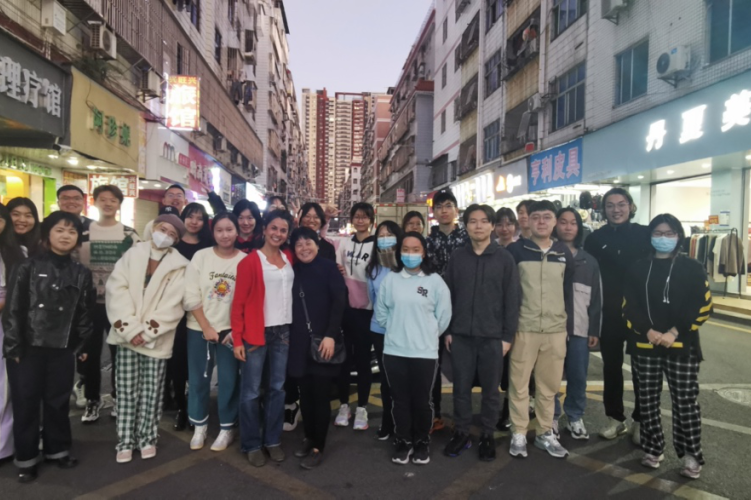
Field trip in the urban village in Ai Lian
The socially anxious youth
Dr. Tsirogianni is not a mere spectator of local culture but a willing learner and a perceptive participant. In class, she would consult her students about the cultural references that she is unfamiliar with; she would grasp any chance to spark the students' critical thinking on socio-cultural and psychological phenomena. Personally, she embraces all kinds of inspiration from other disciplines like sociology, linguistics, and art. When it comes to Chinese popular culture and the prevalent mindset it reflects, what insights will Dr. Tsirogianni, a social psychologist, offer?
Recently, the Chinese netizens have popularized words like “social anxiety” and “Wǒ zì bì le." These buzzwords appear on memes, posts, and in everyday verbal communications. The young netizens tend to use them to express their solitude and isolation from social life, and reluctance to interact with people. But from time to time, many people still feel lonely and disappointed from this withdrawal. The frustration does not only come from a lack of emotional bonding but also from the missed opportunities in work and life for not being 'active' and 'outgoing' enough. Dr. Tsirogianni generously shared her thoughts about the buzzwords popular among the tongue-tied and awkward young generation:“History allows us to see human beings, not as a monolithic and homogenous whole.
It is interesting to see psychological terms entering the popular language.” Many netizens using these terms are unaware that these words represent actual psychological conditions, and it makes you wonder how these insouciant jokes come into being. She then offered an example: as psychological terms, ‘introvert’ and ‘extravert’ typify people; but they have their shortcomings. Do a personality test, and surely you will get a more systematic view of what your self is like, which is oftentimes a fluid, dynamic, and muzzy thing. She went on to explain, “‘I’m this, I’m that’ is a very specific narrative about oneself; it closes down a lot of choices. This could be dangerous.” Fit your life in the frame riveted by these psychological terms may not be as conducive to finding your bearings in this world as you might think.
But how can people break free from this dilemma? Dr. Tsirogianni made a suggestion by referring to Confucian philosophy in her own interpretation: “The Confucian ideal of 'ritual' forces people to break their habits, and to imagine, for a moment, they are different people. A person’s definition of oneself it’s just a set of habits — a person is malleable.” In her explanation, rituals create a context and environment where everyone plays a certain role. Therefore, rituals make room for some transformations to take place. In this way, one does not have to find the self to be static; one could always work on it and practice what one believes instead of sticking to the status quo.
Concerning where this problem stems from, she thinks that the education and assessment system plays a part. It emphasizes a lot on peer competition and seldom teaches us to cooperate and work with people from different backgrounds; it has a unified standard that makes the young people eager to fit in and despair of being the odd man out. Working in groups and realizing the difficulty of working with diverse people could be demanding and frustrating. Still, it is imperative to experience that. “It’s called没有办法 (no way)," she put this vain feeling in Chinese terms. It is a lesson that must be learned if people want to prepare themselves for future challenges.
Besides self-deprecating jokes, she speculated that these popularized psychological terms might be a form of resistance by young people. On the other hand, she reminded us that whenever we want to categorize people or ourselves in these terms, we need to do it with caution; context matters, and it is unfair to reduce people to these simple terms. From her point of view, she believes the youth have their way of dealing with anxiety and awkwardness. As she noticed from her own class, many interactions occur online, and people use digital platforms and social media to engage socially. This discovery from her students also inspired her to experiment with new possibilities about the future, as she begins a whole new project on it. She thinks the message is that it is crucial to find a way that suits oneself. And more importantly, the message for psychologists is to pay attention to how technology is changing subjectivity and the way we see ourselves.
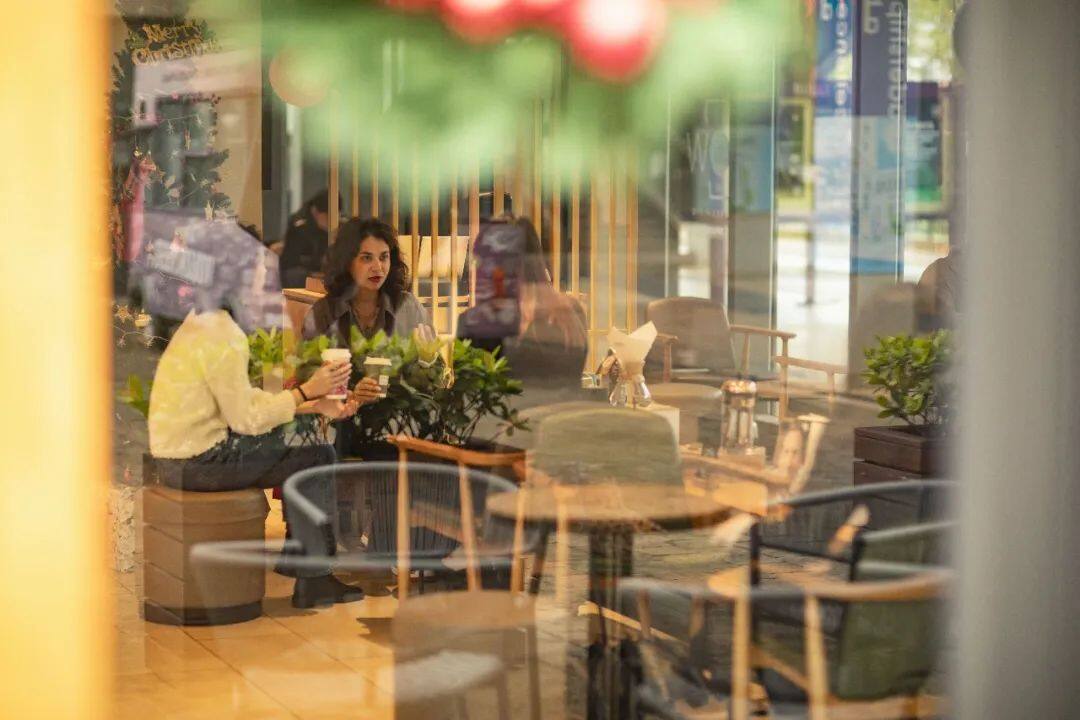
Self-improvement and personal growth
Dr. Tsirogianni also shared some thoughts and experiences on personal growth and self-improvement. Self-improvement is a theme that many young people are concerned about. It is a goal that persists the entire life, but it is also a stressor that causes tremendous distress, discontent, and pressure for everyone. College students shoulder the burden of looking for employment, applying for graduate schools, and perfecting their academic performance; at the same time, they want to make more friends, learn more skills, stay in shape, and lead a wholesome life.
Regarding this situation, Dr. Tsirogianni demanded a pause and raised a few questions for these anxious young souls to ponder: “What is an ideal self? Why do we have to be this ideal human being and be constantly happy and confident? Why?" This stress that the young generation is facing is not merely melancholy but could be detrimental to mental health. The path to self-improvement has gone awry: it is a kind of worship to the individual which is flawed and dangerous. She suggested looking at the individuals through the lens of the social, like she always does in her social psychology class — it is not the individual’s fault, “always think: where this ideal, perfect human being comes from?” Taking a step back and situating the individual in a broader context will give us a better view of the current circumstance.
When you do take a step back, you will find that the concerns once trivial and grueling are but part of your connection with the world. Dr. Tsirogianni shared a quote from Donna Haraway, a feminist theorist, which she cherished: “stay with the trouble.” In the time of the pandemic, she finds this idea especially edifying. As the lives on this planet are confronting a mutual challenge, we need new approaches to explore the possibilities for the future — this entails us to form connections with the lives on Earth, humans and non-humans. The current pandemic forces us to realize the collective nature of our situation and reveals the flaws of the existing ways of thinking and living. But it also gives us a reason to reach out to each other and embrace more radical reimaginations of building more livable lives. And this is a mindset that can facilitate personal growth too. She was deeply inspired by it, “there is so much complexity, it’s not A+B=C, stay with the trouble, engage with the trouble,” she sees the opportunity in troubles as well, “a bubble where you reinforce your own views is dangerous." Adversity could be daunting but not impossible to be tackled: “create solidarity and bonds with other people, form a community, form different types of belonging. It’s human nature; find where you belong.” If you ever find yourself lost, why not reorient yourself by connecting to other human beings or to causes you find inspiring?
The suggestion/answer from her, it’s a simple act: get out of the campus! The twenties is a period for experimentation: “I never imagined 20 years ago, I would be living in China. It never occurred to me. Never.” She encourages young people to think about the alternatives: “sometimes you don’t see them until they arrive, but stay with the trouble and learn from people from all walks of life.”
